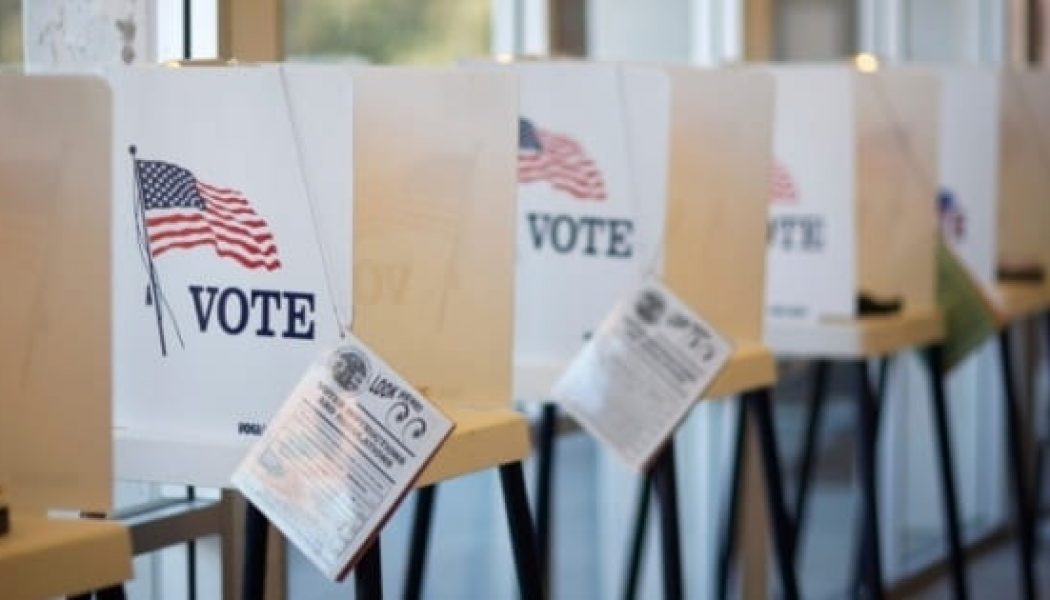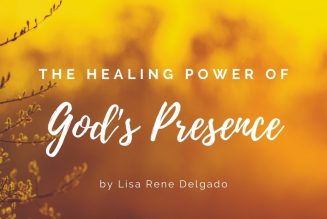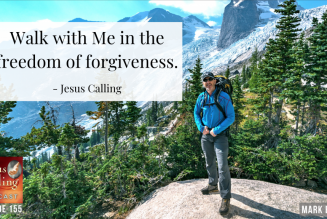
[Editor’s Note: The following is an excerpt of Greg Forster’s book Joy for the World: How Christianity Lost Its Cultural Influence & Can Begin Rebuilding It. (Crossway Books, 2014, pp. 268-272) Reprinted by permission.]
Why Politics Takes over Everything
How does citizenship go wrong? A growing number of people sense that in America today, partisan conflict—the contest for power—is taking over everything. People are no longer confident that we share a citizenship that is more than merely political, nor are they confident that our politics can be based on a moral consensus about justice. Politics is coming more and more to mean solely partisan conflict, and more and more areas of human life are becoming subordinated to that conflict.
This is not a new phenomenon. In fact, it’s the way citizenship typically has gone wrong throughout human history. Aristotle wrote about it at some length almost 2,500 years ago, and with some exceptions, his observations have been vindicated by subsequent history. (There’s a reason people still read him.) James Madison described the same dynamic in his famous paper on the United States constitution, Federalist No. 10. (There’s a reason people still read him, too.)
The problem starts within the political sphere. People start using politics mainly as a way to look out for their own interests, or those of their cultural subgroups. Natural justice gives way to the specific interests of various individuals, factions, and subcultures as the main motivator of political activity.
The critical turning point comes when people begin to identify the desires and interests of their own social faction or subgroup with the general interest of society and natural justice. I convince myself that what I want, or what my group wants, is really what “the community” wants, what the community needs, and what justice demands. Meanwhile, you convince yourself that what you want or what your group wants is really what “the community” wants and needs, and what justice demands.
This is the critical turning point because it causes us to lose any sense that the community exists and has integrity outside the sphere of political conflict. The community’s wants and needs are simply identified with a given political agenda. Justice itself comes to mean the implementation of my agenda. The stage is set for political conflict to slowly begin taking over all of life.
The big lie that makes citizenship go wrong is right at the heart of human sin. What leads people to identify their own desires with justice and the general good? Most basically, it is the sinful desire of the fallen human being to live in an egocentric universe where his wishes define reality. Sin begins with a willful self-deception—the illusion that “you will be like God” if you just act like you’re God (Gen. 3:5).
As the reach of politics extends, it degenerates morally. When justice becomes defined simply as one side’s agenda, the moral consensus aspect of politics withers away. Politics becomes reduced to a competition for power. In the absence of moral consensus, the competition for power is not restrained by any sense of boundaries. This gives it an internal drive to expand and conquer new territory. Meanwhile, the decay of moral consensus increases the level of conflict in society at large, and thus creates incentives to use power in spheres where it wasn’t previously used. So for both internal and external reasons, partisan conflict expands to encompass more and more of social life.
While this is not a new phenomenon, it has specific causes in our time. It goes back to the history we looked at in chapter 1. In the early twentieth century, America lost what was historically its moral center. Societal agreement on natural justice is deteriorating. We have less and less of a shared sense of what’s right or fair in our public conduct. As a result, we have more social conflicts, and the social conflicts we have are harder to resolve peacefully. So we increasingly turn to the use of state force as a way of settling disputes. Hence, the partisan contest for control of the state takes over more and more of life.
This is why we now think of “good citizenship” solely in terms of voting. We know that good citizenship means upholding the moral center of the community. But the moral center of the community is increasingly moving out of the substratum of generous neighborliness and into the surface world of partisan conflict.
A friend of mine named Charlie Self once said that people turn to extreme ideologies when they lose confidence that their culture has answers to the moral crises it faces. Today, extreme ideologies that leave no room for real community outside the political sphere have a greater presence than they used to. On one side is an extreme ideology that advocates an ethics of pure self-interest. If you tell adherents of this ideology that they have a responsibility to generous neighborliness, that smells to them like the thin end of the wedge for socialism and political collectivism. So they actually mobilize to fight against anyone calling for generosity. On the other side is an extreme ideology that views politics and government programs as the source of generous neighborliness. If you tell these adherents that when neighborliness is mandated by law and administered through the state, it becomes politicized, cynical, and ungenerous, that smells to them like an excuse for selfishness. So they actually mobilize to defend government bureaucratization of neighborliness. Neither group wants to politicize everything, but both are effectively taking us in that direction.
Redeemed Citizenship in the Church and the World
Christians are specially enabled to overcome the selfish desire to identify their own desires as the public good by the miraculous work of the Holy Spirit in revelation, regeneration, and sanctification—in our private hearts and in the faith community of the church. He shows us through Scripture and through biblical preaching and teaching what citizenship and the community are really for—mostly by reminding us of the moral truths that we knew already but preferred to forget, but also by enlarging our perspective with additional “inside information.”
He works miracles in our hearts that transform us into people who are morally capable, however imperfectly, of generously blessing all our neighbors regardless of where they stand with the Lord, and participating in the community (including the political system) in ways that cultivate justice and flourishing for all citizens. And he sustains the shared life of the church, where we can support each other and build each other up as a people who value natural justice and generous neighborliness, without losing sight of the higher theological justice that we know is really at the heart of the universe.
Here we see how cultivating discipleship within the church is not a separate, isolated activity from going out into the world to be a blessing to our neighbors. Good citizenship has been right at the heart of Christian discipleship as far back as history records. In the middle of the second century, Justin Martyr argued that the Roman emperor should tolerate Christianity because “Christians are such good citizens that when Christianity flourishes, non-Christians are better off.”
Some in our own time want to suppress Christianity by force. We ought to be able to say the same thing to them that Justin said to the Romans. Can we?
Greg Forster (Ph.D., Yale) is a program director at the Kern Family Foundation for the Faith, Work, and Economics Program. He is the editor of Hang Together, a group blog on religion, politics, and national identity. Greg has written six books including the one excerpted above: Joy for the World: How Christianity Lost Its Cultural Influence & Can Begin Rebuilding It (Crossway Books, 2014).










